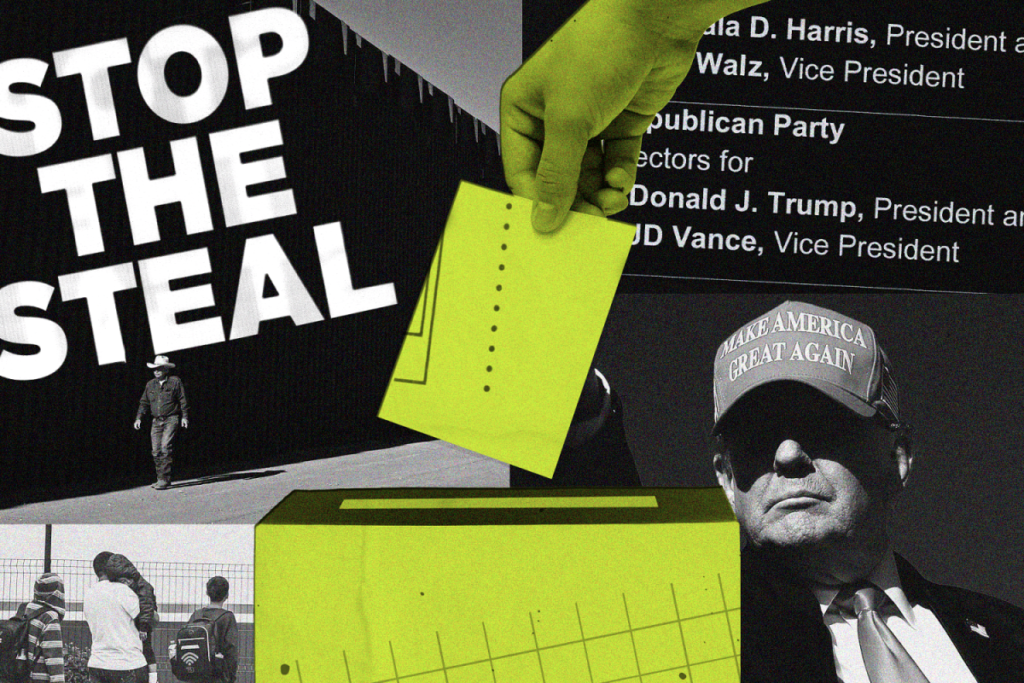The 2024 election cycle in the United States has seen a troubling resurgence of claims surrounding noncitizen voting, largely orchestrated by a coalition of conservatives dubbed the Election Integrity Network. This group, which includes numerous high-profile figures like state lawmakers and Trump administration officials, convenes weekly via video conferences to discuss and strategize around unfounded allegations of a coordinated effort by leftists to enable noncitizens, particularly immigrants, to vote. Conservative activists share their thoughts on various measures, ranging from scrutinizing driver’s license records to reviewing voter rolls for names they deem “ethnic.” The aim is to galvanize their base under a common banner of “election integrity,” using the specter of noncitizen voting to justify restrictive measures that could severely impact voting rights and disenfranchise large segments of the electorate.
In stark contrast to the chaotic and unfocused election denial narratives that characterized Trump’s 2020 campaign, the current messaging is singular and pointed. Emphasizing a manufactured threat of noncitizen voters in federal elections, Republicans attempt to create a narrative that marries fears about border security with concerns over election integrity. Evidence for widespread noncitizen voting remains virtually nonexistent, with studies showing minuscule rates of suspected illegal voting, yet the narrative continues to gain traction among conservative media and online communities. This clearer and more focused messaging is seen as a concerted effort to mobilize the conservative base, raising questions about the legitimacy of the upcoming election results.
Tactics employed by these conservative groups extend beyond mere rhetoric; they actively work to restrict voting access by pushing for legislative measures that limit voting rights and purge voter rolls across various states. Using the guise of safeguarding elections, they are flooding the courts with dubious lawsuits claiming voter fraud, which cast doubt on the integrity of upcoming elections. These legal maneuvers are detrimental, resulting in voter disenfranchisement and fostering an environment of hostility that impacts various voter advocacy groups. Progressive activists and organizations that promote voting rights, particularly those focused on minority and immigrant communities, face increasing harassment, undermining their efforts to mobilize voters.
The climate of fear surrounding noncitizen voting also finds resonance in social media, where influencers amplify these unfounded claims. Content creators are increasingly producing biased videos that suggest an immigration strategy to influence elections, often using misleading edits to craft narratives that fuel the belief in a conspiracy. This disinformation is not only a threat to informed public debate but can also incite real-world violence against immigrants and progressive activists. The rhetoric used by prominent political figures has ignited fears that echo historical prejudices against immigrants, effectively branding them as enemies of national interest, contributing to a spike in anti-immigrant sentiment.
Given the entrenched nature of these narratives, experts anticipate that regardless of the outcome of the 2024 election, the noncitizen voting myth will persist, rearing its head even if scientifically disproven. Should Trump win, he would likely claim that the victory was due to an overwhelming margin despite alleged efforts to import illegal voters, thus feeding into the existing conspiracy theories. If he loses, his allies may use these unfounded claims to challenge the legitimacy of the election results. The implications are profound, setting the stage for increased polarization and contestation, effectively ensuring that the myth of noncitizen voting will remain a focal point for conservative activism, shaping the political landscape well beyond the election itself.
As the election approaches, the ongoing efforts by organizations and activists claiming to fight noncitizen voting will likely escalate, preparing for what could be a contentious post-election scenario. The groundwork laid by coordinated campaigns and legal challenges suggests a well-planned strategy crafted during the preceding years of election disputes. High-stakes, emotionally charged narratives about immigration and voter fraud have already proved effective in mobilizing certain segments of the population, allowing these groups to maintain and even increase their influence in a polarized political environment. The careful orchestration of these narratives underscores a pivotal moment in American democracy, as they attempt to redefine participation in the electoral process amid a backdrop of systemic misinformation and resentment.

